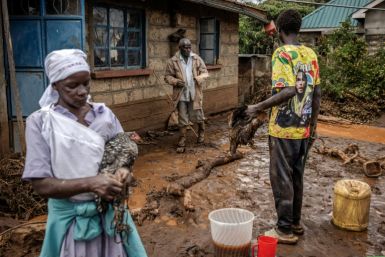The Angelina Jolie Effect: Her Mastectomy Revelation Doubles Breast Cancer Testing Referrals, Finds New Study
The Jolie Effect Has Had a Long Term Impact on Women Not Just in Canada But in the UK as Well.

Angelina Jolie had come out in the open and told the media and her fans that she had undergone a double mastectomy due to her high risk of genetic cancer. After she underwent the preventive surgery, her risk had dropped to under 5 percent. Inspired by her action, several women with high risk of genetic cancer started going for the tests.
A Canadian study found that her revelation had a positive effect on women and doctors began calling this the "Angelina Jolie Effect." Now, a new study conducted in U.K. has found that since her revelation in May 2013, the GP referrals for genetic counseling and DNA test rates have increased in the U.K. as well.
Last year immediately after Jolie publicly accepted it, the number of people coming forward for the tests increased by two-thirds of the times when compared to the same period in 2012. But surprisingly, the study found that the "Jolie effect" has continued. The number of referrals has doubled in from August to now when compared to last year's numbers.
Professor Gareth Evans, who led the study published in the journal Breast Cancer Research, said that compared to other celebrity announcements, Angelina Jolie's double mastectomy decision and her revelation about her having a BRCA1 mutation has had the greatest impact on women. Evans is from the charity Genesis Breast Cancer Prevention and St Mary's Hospital, Manchester. Due to her example, many women are going in for a risk-reducing mastectomy.
Evans stated that previously, there were fears related to the surgery and women did not want to lose their sexual identity. But Jolie's strong decision has led to women considering genetic testing. The tests would make it clear as to what they have to do to prevent the disease from developing.
Women take to cancer preventing drugs, such as tamoxifen, and also make lifestyle changes like a healthy diet and more exercise, said Evans. Only women with mutation of the BRCA1 or BRCA2 genes are recommended to get the surgery done. Such women have a 45 to 90 per cent likelihood of developing breast cancer.
Researchers say the "Jolie effect" makes it clear that a lot more has to be done to spread awareness regarding breast cancer. They recommend that women with a family history of breast cancer must undertake the test.






